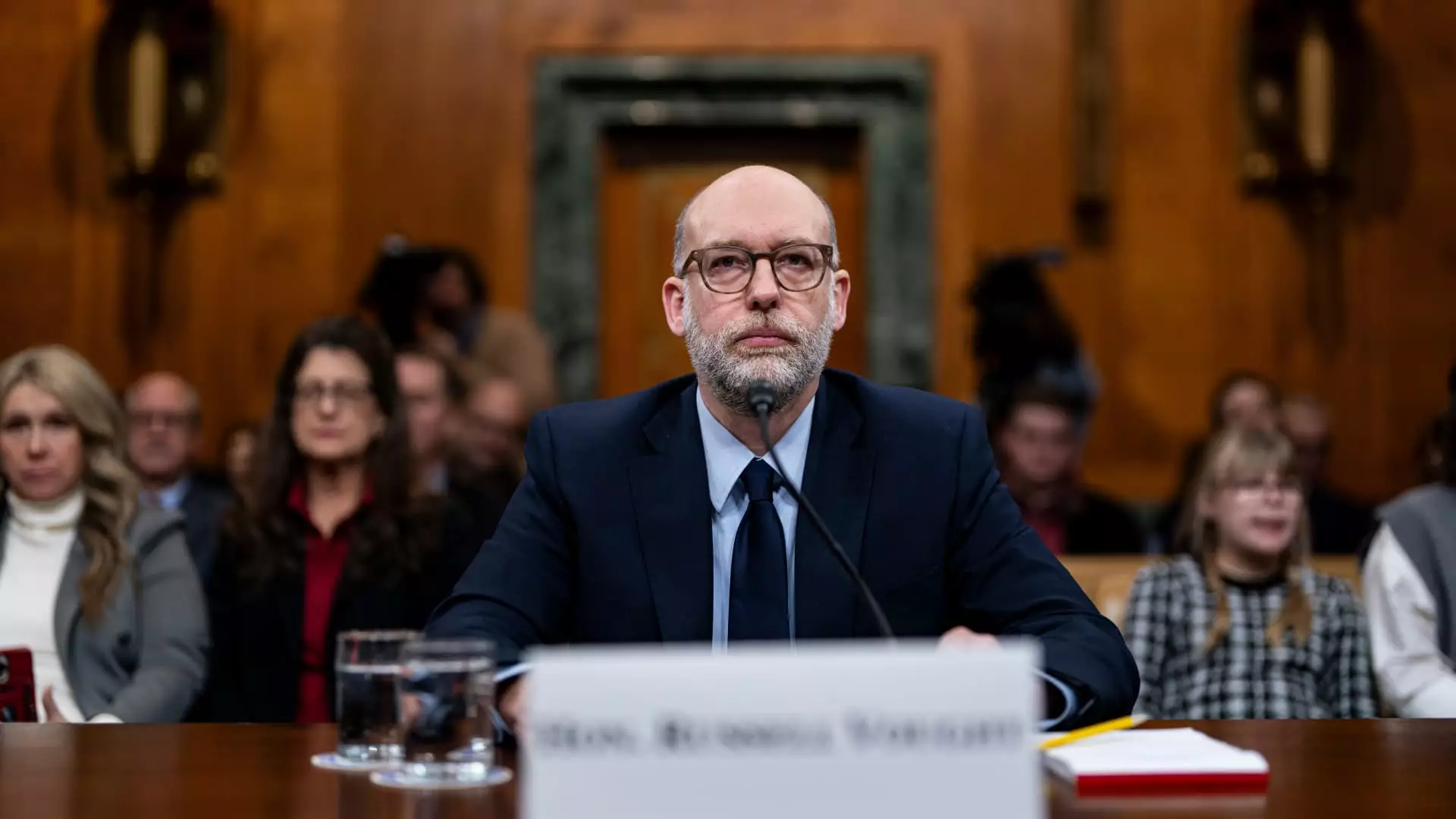The recent confirmation of Russell Vought as the director of the Office of Management and Budget (OMB) has stirred up considerable debate on Capitol Hill, revealing the stark divide between partisan perspectives on government spending and federal oversight. The U.S. Senate confirmed Vought with a 53-47 vote amid a partisan showdown that underscored the contentious political climate. As a nominee who embodies the hardline conservative ethos, Vought’s role is critical not merely for fiscal management but as a pivotal figure that could redefine the interactions between Congress and executive powers over budgetary matters.
Vought ascends to his role backed by a reputation for advocating a limited role for Congress in budgetary allocations. This perspective challenges the established norms of budgetary authority, especially concerning the 1974 Congressional Budget and Impoundment Control Act, which restricts the president from denying funds allocated by Congress—a practice known as impoundment. Vought’s assertion that this 1974 law is unconstitutional has not only raised eyebrows within Democratic circles but has also raised concerns among some Republicans who fear the implications of such a radical reinterpretation of executive authority.
The reaction from Democrats was vociferous during the confirmation process, with strong criticisms labeling Vought as a far-right ideologue. They connected his past activities, particularly his role in the contentious Project 2025 initiative, to several controversial administrations actions. Notably, Senate Democratic Leader Chuck Schumer fervently warned that Vought’s influence could lead to detrimental impacts on critical government functions, from foreign aid through USAID to the Justice Department’s prosecutorial independence. This framing attempts to rally public sentiment against what they view as dangerous overreach.
Adding fuel to the fire was the recent White House memo freezing billions in federal grants and loans, an action the administration justified as aligning funding with Trump’s explicit directives. Although the memo was quickly rescinded following judicial intervention, it revealed a troubling potential for overt political manipulation of federal funds, particularly concerning programs designed to promote diversity and inclusivity. This incident exemplifies the fear among Democrats that Vought, alongside Trump’s administration, could assert greater unilateral control over vital government programs, undermining democratic checks and balances.
In contrast, Republicans have positioned Vought as a beacon of fiscal responsibility, championing his track record with the OMB as evidence of his capability to trim what they describe as unnecessary government expenditure. Senate Majority Leader John Thune emphasized the importance of reducing wasteful spending, projecting optimism in Vought’s ability to tackle these challenges effectively. For Republicans, this confirmation is seen as a major step towards realizing a long-held desire to limit governmental powers and expenditures, fulfilling promises made to their constituents for a leaner government.
The appointment of Russell Vought as budget director represents more than a mere staffing decision; it signifies a broader ideological battle over the future of American governance. As the nation grapples with pressing social, economic, and political issues, the outcomes of Vought’s strategies in managing fiscal policies could reverberate well beyond the immediate budgeting concerns. The true test for Vought may come not only from the scrutiny of his actions but also from the response of a public increasingly aware of the implications of concentrated executive power over budgetary discretion. As his tenure unfolds, the ongoing debate will likely intensify, revealing deeper themes of governance, accountability, and civic engagement in democracy.

